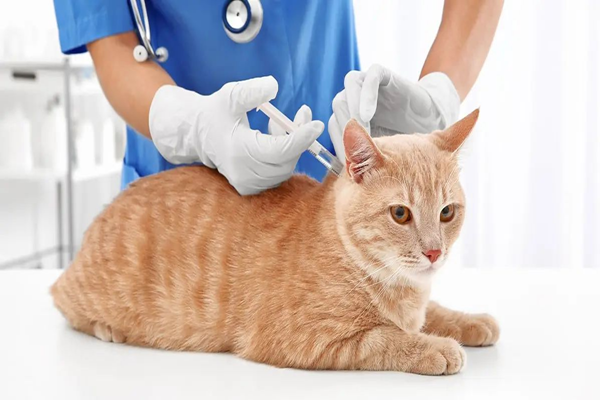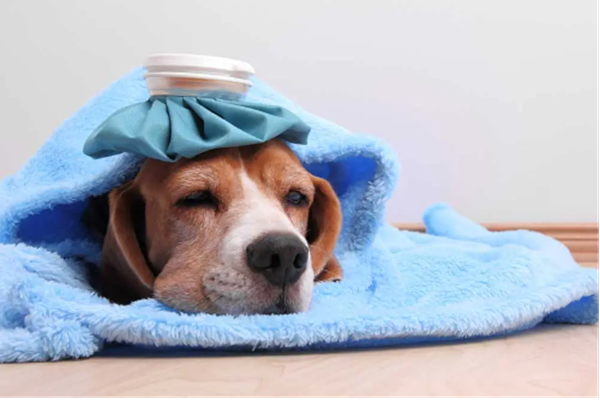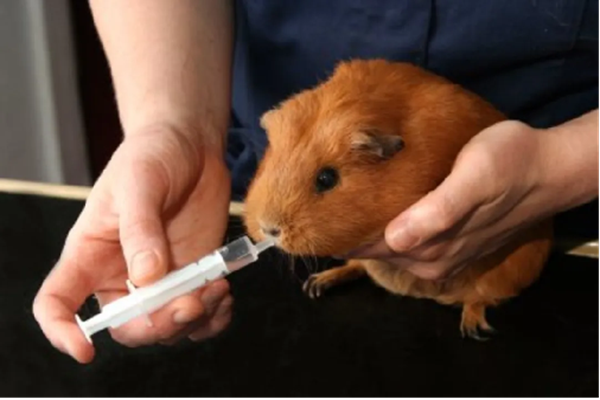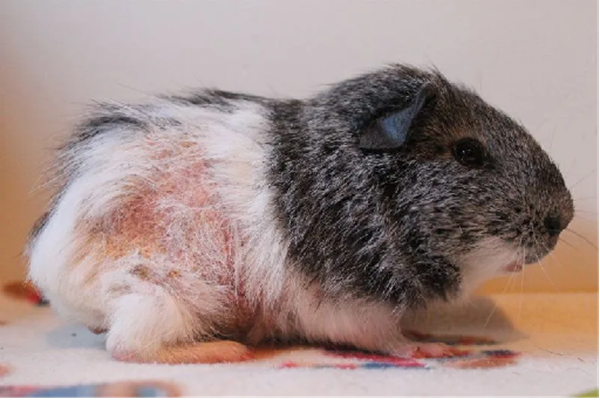Cases of poisoning caused by incorrect medication used by pets 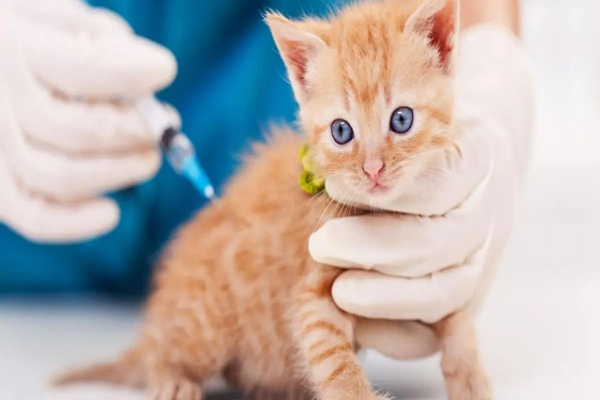
01 Feline poisoning
With the development of the internet, the methods for ordinary people to obtain consultation and knowledge have become increasingly simple, with both advantages and disadvantages. When I often chat with pet owners, I find that they don’t actually know the detailed information about the disease or medication when they give their pets medication. They only see online that others have given their pets medication or that it is effective, so they also give their pets medication based on the same method. This actually poses a great risk.
Everyone online can leave messages, but they may not necessarily be universal. It is likely that different diseases and constitutions will lead to different outcomes, and some serious outcomes may not be apparent yet. Others have caused serious or even death, but the author of the article may not necessarily know the cause. I often encounter situations where pet owners use the wrong medication, and many serious cases are caused by incorrect medication in some hospitals. Today, we will use a few actual cases to explain the importance of medication safety.
The most common drug poisoning that cats encounter is undoubtedly gentamicin, because the side effects of this drug are too many and significant, so I rarely use it. However, due to its strong efficacy and being a favorite drug among many animal doctors. There is no need to carefully distinguish where the cat is inflamed, vomiting or diarrhea due to a cold. Just give it an injection, and one injection a day for three consecutive days will mostly help to recover. The side effects of the medicine include nephrotoxicity, ototoxicity, neuromuscular blockade, especially in pets with previous kidney disease, dehydration, and sepsis. The nephrotoxicity and ototoxicity of aminoglycoside drugs are well-known to all doctors, and gentamicin is more toxic than other similar drugs. A few years ago, I encountered a cat that suddenly vomited several times in a row. I asked the pet owner to check if their urine was normal for half a day and take photos of vomiting and bowel movements. However, the pet owner was worried about the disease and sent it to the local hospital for injection without any examination. The next day, the cat was weak and lethargic, did not eat or drink, did not urinate and continued to vomit. It was recommended that it go to the hospital for a biochemical examination. It was found that acute kidney failure had not been treated yet, and it passed away within an hour. The hospital naturally refuses to admit that it was due to their lack of examination and indiscriminate use of medication, but refuses to provide medication records. Pet owners only receive medication records after reporting to the police, which is the use of gentamicin during kidney failure, leading to deterioration and death within 24 hours. Finally, with the intervention of the local rural agriculture bureau, the hospital compensated for the expenses.
02 Dog poisoning
Dogs in pets generally have a relatively large body weight and good drug tolerance, so unless it is an extreme situation, they are not easily poisoned by drugs. The most common types of poisoning in dogs are insect repellent and fever reducing drug poisoning. Insect repellent poisoning usually occurs in puppies or small weight dogs, and is often caused by the use of domestically produced insect repellents, insecticides, or baths for dogs due to uncontrolled dosage. It is actually very easy to avoid it. Choose a reputable brand, strictly follow the instructions, calculate the dosage, and use it safely.
Antifebrile drug poisoning is often caused by pet owners randomly reading posts online. Most pet owners are not familiar with the normal temperature range of cats and dogs, and it is still based on human habits. Pet hospitals are also unwilling to explain more, which can stimulate pet owners’ concerns and earn more money. The normal body temperature of cats and dogs is much higher than that of humans. For cats and dogs, our high fever of 39 degrees may only be a normal body temperature. Some friends, afraid of hastily taking fever reducing drugs, have not taken fever medication and their body temperature is too low, leading to hypothermia. Overmedication is equally terrifying. Pet owners see online that the most commonly used medication is acetaminophen, also known as Tylenol (acetaminophen) in China. One tablet is 650 milligrams, which can cause poisoning and death for cats and dogs at 50 milligrams per kilogram and 200 milligrams per kilogram. Pets will absorb it within 1 hour of ingestion, and after 6 hours, they will experience jaundice, hematuria, convulsions, neurological symptoms, vomiting, drooling, shortness of breath, rapid heartbeat, and death.
03 Guinea pig poisoning
Guinea pigs have very high drug sensitivity, and the number of safe drugs they can use is far less than that of cats and dogs. Pet owners who have been keeping guinea pigs for a long time are aware of this, but for some newly raised friends, it is easy to make mistakes. The sources of incorrect information are mostly online posts, and there are even some pet doctors who may have never been in contact with pets, using their experience in treating cats and dogs, and then. The survival rate of guinea pigs after poisoning is almost equivalent to a miracle, because there is no way to treat it, and they can only try to regulate it and then see their fate.
The most common drug poisoning in guinea pigs is antibiotic poisoning and cold medicine poisoning. There are only about 10 common antibiotics that guinea pigs can use. Apart from 3 injections and 2 low-grade drugs, only 5 drugs are used in daily life, including azithromycin, doxycycline, enrofloxacin, metronidazole, and trimethoprim sulfamethoxazole. Each of these drugs has a specific disease and adverse reactions, and should not be used indiscriminately. The first antibiotic that guinea pigs cannot use internally is amoxicillin, but this is the favorite medication of most pet doctors. I have seen a guinea pig that was originally disease-free, possibly due to frequent sneezing caused by the stimulation of grass powder while eating grass. After taking X-rays, it was found that the heart, lungs, and air ducts were normal, and the doctor casually prescribed sunox to the guinea pig. The next day after taking the medicine, the guinea pig began to feel mentally lethargic and appetite decreased. When they came to see the doctor on the third day, they were already weak and stopped eating… Perhaps it was the love of the pet owner that moved heaven. This is only intestinal toxic guinea pig I have ever seen saved, and the hospital has also made compensation.
Skin disease drugs applied topically often cause guinea pig poisoning, and they are the most commonly used drugs with the highest toxicity, such as iodine, alcohol, erythromycin ointment, and some pet skin disease drugs often recommended by advertisements. I can’t say that it will definitely lead to the death of guinea pigs, but the probability of death is very high. This month, a guinea pig suffered from skin disease. The pet owner listened to a spray commonly used by cats and dogs introduced on the Internet, and died of convulsions two days after use.
Finally, it should be noted that cold medicine is extremely sensitive to guinea pigs, and all medications are summarized after long-term laboratory experiments and extensive data. I often hear pet owners who use the wrong medicine say that they have seen in a book that the so-called symptom is a cold, and they need to take drugs such as cold granules, houttuynia granules, and children’s aminophen and yellow amine. They tell me that even if they take them, they have no effect, and these drugs have not been fully tested and proven to be effective. Moreover, I often encounter guinea pigs dying after taking them. Houttuynia cordata is indeed used in meat guinea pig farms to prevent respiratory infections in guinea pigs, but you should be aware that the ingredients of Houttuynia cordata and Houttuynia cordata granules are different. The day before yesterday, I met a pet owner of a guinea pig who gave him three doses of cold medicine. According to the post, 1 gram was given each time. Is there a principle of calculating by gram when guinea pigs take medicine? According to the experiment, it only takes 50 milligrams to cause death, with a lethal dose 20 times higher. It starts not eating in the morning and leaves at noon.
Pet medication requires strict adherence to medication standards, symptomatic medication, timely dosing, and avoiding turning minor illnesses into serious ones due to indiscriminate use.
Post time: Jul-05-2024

